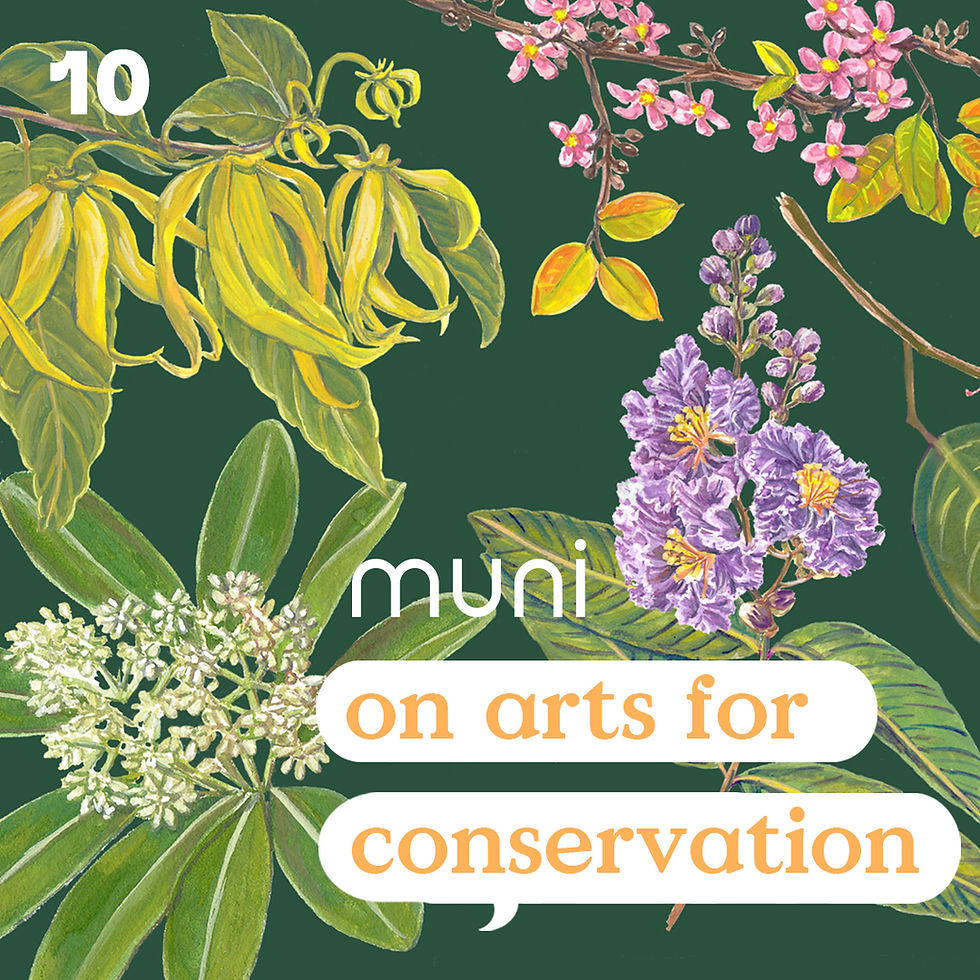Mindful Eating: Becoming Aware of the Impact of Your Food Choices
- Team Muni

- Feb 21, 2013
- 3 min read
Photo c/o vanderbilthealth.com
Muni on this:
Are you aware of the impact your food choices create?
When people make efforts to live a healthier or more mindful lifestyle, the area that tends to present the greatest challenge is the area of one’s diet.
This is hardly surprising because few things involve as complex and comprehensive a set of lifestyle changes as alterations in diet. Getting enough sleep and exercise, taking a few moments to pray or meditate, and engaging in kind behavior can be incorporated easily enough into daily life with careful planning. We can snooze during long commutes, climb the stairs instead of catching a lift, listen to meditative music while driving and thank the many people we encounter every day. In short, these are habits we can cultivate with relatively little inconvenience.
Diet, however, is another matter entirely. Our relationship to food is complex. For many of us, it provides some of the most immediate and ordinary sensory pleasures in our daily life, and its consumption provides the most common setting for our sociality—whether it’s as simple as sharing a meal with family or organizing a going-away feast for a friend. We readily associate food and its attendant acts of cultivation, preparation and consumption with connection, escape, intimacy, leisure, motivation, pleasure, prestige and reward.
The Ethical and Political Dimensions of Diet
What we do not associate as easily with food is the fact that, like all significant dimensions of human life, its consumption represents an ethical choice and a political act. This association has been weakened by centuries of outsourced agrarian production. Said another way, because quite a number of human beings have not actually produced their own food since agriculture became a specialized domain, we are not present to much of what’s involved in getting our food onto our plates. This obviously wasn’t always the case.
In the earliest periods of human history, the ethical and political dimensions of food-generating activities such as hunting and farming were recognized and enshrined in their status as sacred activities. When you’re capturing or growing your own food, you can’t help but be present to the fact that it takes life to nourish life. The gravity and solemnity of this trade is part of why our ancestors imbued hunting and farming with religious significance.
Recovering the Ethical and Political Connection Today
The trade of life for life is no longer as visible in our contemporary times—which in no way reduces the ethical and political dimensions of food consumption. If anything, those dimensions have expanded to the same degree that they’ve been made invisible. Our task now is to recover that once-tangible connection between the life of an other and our own lives.
The invitation here is to simply look: to see clearly and to understand what’s involved in the process of nourishing ourselves—what are the benefits, what are the costs, what are the tradeoffs—and to allow our understanding to provide the basis for our subsequent actions.
Starting or Joining the Inquiry
It’s not the objective of this post to preach but to provide a thought starter and perhaps open a venue for frank and honest discussion. There’s no moral high ground here: among the faculty of our own studio, we occupy different positions along the entire food lifestyle spectrum. All of us have confronted the same issues or are still confronting them. All of us are faced with, and are still facing, the same choices, the same pressures and certainly the same temptations. Our objective in this post is to simply share a different perspective—what you do thereafter with this perspective is entirely up to you.
Melding Mindfulness and Diet
In the end, the trade of life for life can never be annulled—it’s part of what it means to be alive. But we can and we must remain mindful of that trade. Whether we realize it or not, the freedom and happiness of all beings—most especially ours—hinges on that mindfulness.
So here’s our invitation: Start training your awareness on what you eat. Start thinking about how your food got on your plate. Start thinking about what it will do once it enters your body. And then be willing to act honestly and responsibly based on what you discover.
—
ABOUT THE AUTHOR Eileen Tupaz is a freelance writer and a co-director of Katipunan-based White Space Mind and Body Wellness Studio, which offers classes and workshops on mind and body disciplines such as yoga, pilates, t’ai chi, reiki and meditation, among many others.







Comments